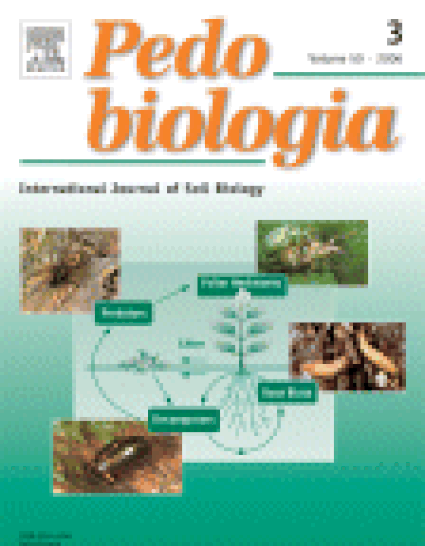
Article
Choice of Methods for Soil Microbial Community Analysis: PLFA Maximizes Power Compared to CLPP and PCR-Based Approaches
Pedobiologia
(2006)
Abstract
Polyphasic studies that used phospholipid fatty acid analysis (PLFA) in conjunction with community level physiological profiling (CLPP) or PCR-based molecular methods were analyzed in order to evaluate the power of each strategy to detect treatment effects on soil microbial community structure (MCS). We found no studies where CLPP or PCR-based methods differentiated treatments that were not also differentiated by PLFA. In 14 of 32 studies (44%), PLFA differentiated treatments that were not resolved by CLPP analysis. In 5 of 25 studies (20%), PLFA differentiated treatments that were not resolved by PCR-based methods. We discuss PLFA, CLPP, and PCR-based methods with respect to power to discriminate change in MCS versus potential for characterization of underlying population level changes.
Keywords
- Polyphasic,
- Phospholipid fatty acid,
- PLFA,
- Community level physiological profiling,
- CLPP,
- PCR
Disciplines
Publication Date
July 1, 2006
Citation Information
Philip W. Ramsey, Matthias C. Rillig, Kevin P. Feris, William E. Holben, et al.. "Choice of Methods for Soil Microbial Community Analysis: PLFA Maximizes Power Compared to CLPP and PCR-Based Approaches" Pedobiologia Vol. 50 Iss. 3 (2006) Available at: http://works.bepress.com/kevin_feris/14/
